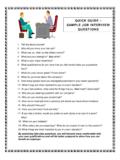Transcription of THE 12 COMMON AUTOMATIC THINKING MISTAKES
1 1 THE 12 MOST COMMON THINKING MISTAKES (ALSO CALLED AUTOMATIC THOUGHTS OR COGNITIVE DISTORTIONS) Although some negative AUTOMATIC thoughts are true, many are either untrue or have just a grain of truth. Here are a few COMMON errors. 1. All-or-nothing THINKING (also called black-and-white, polarized, or dichotomous THINKING ): You view a situation in only two categories instead of on a continuum. Example: "If I'm not a total success, I'm a failure." 2. Catastrophizing (also called fortune telling): You predict the future negatively without considering other, more likely outcomes. Example: "I'll be so upset I won't be able to function at all." 3. Disqualifying or discounting the positive: You unreasonably tell yourself that positive experiences, deeds, or qualities do not count.
2 Example: "I did that project well, but that doesn't mean I'm competent; I just got lucky." 4. Emotional reasoning: You think something must be true because you "feel" (actually believe) it so strongly, ignoring or discounting evidence to the contrary. Example: "I know I do a lot of things well at work, but I still feel as if I'm a failure." 5. Labeling: You put a fixed, global label on yourself or others without considering that the evidence might more reasonably lead to a less disastrous conclusion. Examples: "I'm a loser. He's no good." 6. Magnification/minimization: When you evaluate yourself, another person, or a situation, you unreasonably magnify the negative and/or minimize the positive. Examples: "Getting a mediocre evaluation proves how inadequate I am.
3 Getting high marks doesn't mean I'm smart." 7. Mental filter (also called selective abstraction): You pay undue attention to one negative detail instead of seeing the whole picture. Example: "Because I got one low rating on my evaluation [which also contained several high ratings] it means I'm doing a lousy job." 8. Mind reading: You believe you know what others motivations are, or what they are THINKING , failing to consider other, more likely possibilities. Example: "He's THINKING that I don't know the first thing about this project." 9. Overgeneralization (also called global THINKING ): You make a sweeping negative conclusion that goes far beyond the current situation. Example: "[Because I felt uncomfortable at the meeting] I don't have what it takes to make friends.
4 " 10. Personalization: You believe others are behaving negatively because of you, without considering more plausible explanations for their behavior. Example: "The repairman was curt to me because I did something wrong." 2 11. "Should" and "must statements (also called imperatives): You have a precise, fixed idea of how you or others should behave and you overestimate how bad it is that these expectations are not met. Example: "It's terrible that I made a mistake. That mistake was disastrous. I should never make a mistake." 12. Tunnel vision: You only see the negative aspects of a situation. Example: "My son's teacher can't do anything right. He's critical and insensitive and lousy at teaching." Dr. Jane Bolton, a marriage and family therapist, master results coach and contemporary psychoanalyst and is dedicated to supporting people in the fullest self expression of their Authentic Selves.
5 This includes Discovery, Understanding, Acceptance, Expression, and Empowerment of the Self. Call or visit.












